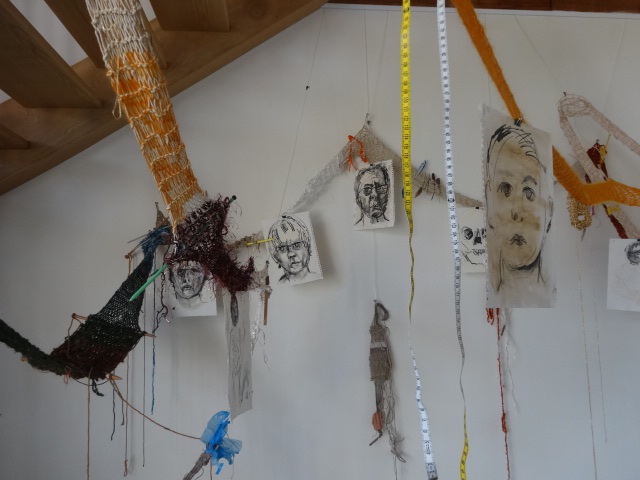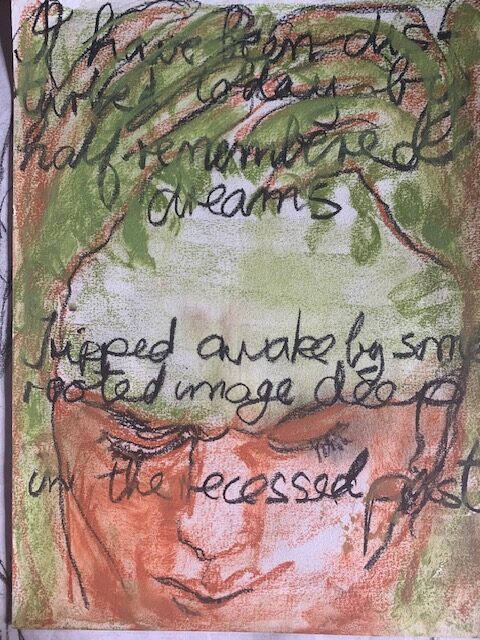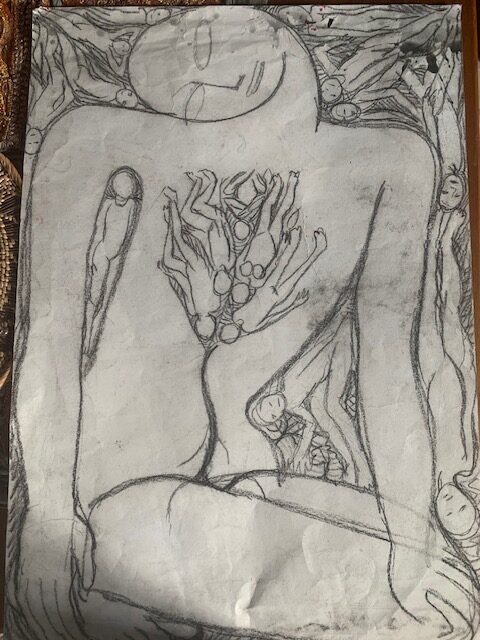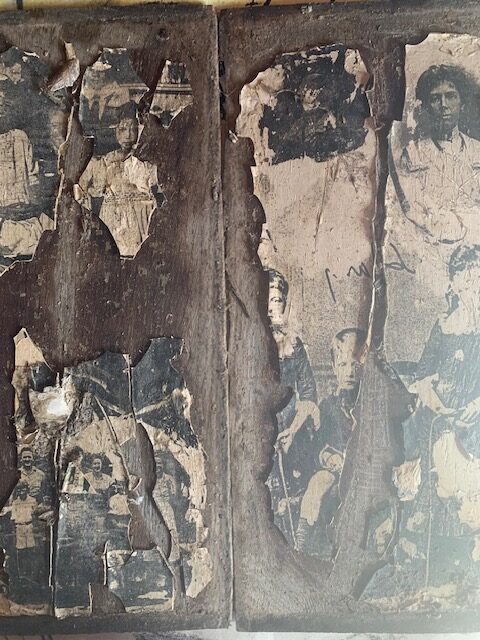Totalitarianism

The dictionary says totalitarianism is a system of government that is centralised and dictatorial and requires complete subservience to the state. It means that someone living in such a state is not free to speak out or act without permission from the powers. From my brief experience of a police state, it is a terrifying place to live in. Totalitarian states kill without justice.
What does it mean to send somebody to Coventry?

It means that a person is placed outside of the human community and away from communication or the connections needed for life. It means that a person isn’t considered human and doesn’t deserve to be treated as a human. It can only be done by someone with power to someone with less power. It happens in relationships and marriages and is done in schools by bullies. From my experience, it feels like being slowly killed. It is being exiled to a prison without parole or the possibility of making a new life. A short Golden Silence may be healing, but Coventry is cruel and painful.

What does it mean to cancel someone?
Cancelling can mean calling off an arrangement, a debt or an event. In movies, it can mean killing somebody. Synonyms are abandon, abort, void, revoke, rescind, scrap and kill as well as many others. Cancelling can be the stopping of a relationship or the breaking of an engagement. There could be reconciliation and a new beginning instead. Sometimes distancing for a while is helpful but there are always better ways to manage problems than wiping out someone. Being cancelled feels like being killed, but it’s not slow.
What does it mean to kill someone?

Killing someone means that you end their life. I was threatened with death several times. As a woman, I will not be alone in experiencing that and the fear it brings. Sometimes it is difficult for endangered people to escape and to find a safe secure place to be and to live.
Why would someone kill, cancel or send a person to Coventry?
To kill, cancel or send someone to Coventry, is to exercise power over them. We suppose that these actions are done for valid reasons, but is that true? How can we judge them? What appeal is there against them? Human justice and fair play notions require that they are done for good reasons and not in a rage, for revenge, out of spite, or for personal emotional reasons, however strongly felt. The carrying out of a death sentence is done by the state after a just trial. It’s not something I ascribe to and it’s not done in the countries where I am a citizen. Thank you Robert Badinter, Minister of Justice, for abolishing the death sentence in France in 1981.
When is it right to kill, cancel, or send someone to Coventry?

Killing is the crime of murder. It’s never right. Cancelling or sending someone to Coventry is not done after a fair trial where impartial justice can be seen to be done. In Coventry, no system prescribes the length of the punishment or allows for parole either so by default, it is unjust. Worse, it’s a bad idea and it doesn’t work. All of these actions are totalitarian because they are forced by one power onto another without fairness, kindness or the possibility of redress, justice or discussion.
What happens to someone who kills, cancels, or sends another person to Coventry?
The killers, cancellers and senders-away are first of all, human, complex creatures capable of understanding, of love, of learning, of wrongdoing, of remorse, of guilt and forgiveness and kindness. They are the same as the person they have decided they have the right to kill or punish. As they are the same they have two ways to go. Either they will become less human and more totalitarian or they too will suffer and regret that their behaviour was totalitarian. Of course, life doesn’t work in neat patterns, but humans are ‘patterns’ that we can’t escape from. The answer lies somewhere between Mrs Doasyouwouldbedoneby and Mrs Bedonebyasyoudid. There’s the possibility of a better way if only we communicated with each other
What did I do to be dead, silenced and cancelled?

The sad truth is I don’t know why this has happened. I’ve agonised, I’ve guessed, I’ve been desperate. I do know I’ve made mistakes and I’ve failed. Like most people, I did my best and like most people, my best wasn’t good enough for all circumstances. We all come out of a history of wrongdoing and though we wanted and tried to be good, we are both damaging perpetrators and damaged victims. I hurt my mother very badly when I was young. It wasn’t deliberate. It was just the way life happened. I tried at the time to lessen my mother’s pain, but though we were never estranged, she would not let me talk about it until she was about the age I am now. In the end, we asked each other for forgiveness. I wish it had been sooner. My guilt might have been less and my happiness greater and maybe hers would have been, too.
Why is it wrong to cancel, kill or silence another human?
My mind has been awash with ideas that ripple outwards beyond family and local matters to the shores of wars and nations. We live between a past we didn’t understand as it happened and an unknown future we are blindly creating. If knowledge of our past is fixed, if that knowledge never varies, then we are imprisoned in a totalitarian history that never existed. Brexiteers voted for a Britain that never was. Rhodesians fought a war for a past that was a white man’s dream. The past is not just another country – it is another land of mirages still being discovered. If you cancel, kill or send away a person you are putting a totalitarian stop to change. It’s impossible. You can’t bring an end to hope and the possibility of wisdom and growth. Cut my throat, drain me of blood, I will not choose to haunt you, but you cannot choose not to be haunted by me. You will always remember that you invited silence, death and ignorance into your heart instead of love.
What can I do now?
I don’t know. People are constantly cancelled for their opinions on gender, religion or politics. It’s always in the news and it’s sad, frightening and unhelpful for many of us. Cancel culture is something I have no control over as it’s not down to one person but to us all. I’m one of the Silent Generation and will soon be among the dead. I have to accept what has happened to me in life but though I’ve often been afraid to speak out, I will not be silenced and I cannot be cancelled.
My next post may be about the funeral of a young man 50 years before he died.
4 Comments on “Murder or not”
I know that this Post is a very personal statement, but it has wider implications. When someone ‘kills’, cancels or sends you to Coventry (to cover all three I would say ‘obliterates’ you) they are trying to eliminate you from the public discourse, ostensibly to have your standpoint hidden from the wider view and, more particularly, to remove your counterarguments to their own standpoint. In other words, they are afraid to engage you in opên discussion. Cancel Culture is therefore an admission of fear.
Thank you John
You know the costs of being “obliterated” not just in pain and despair but in therapy both physical and psychological. I’m not alone in this experience – so many people have to endure similar suffering. You are also right about it coming out of fear however I think that the best answer to the fears we all have is to search for the truth as far as we can. At the same time I recognise that there are many ways and many personal perspectives from which we search for and understand truth. We all change however and the problem with obliteration is that it is an attempt to freeze time and truth and hearts – the way of the Snow Queen fairy story.
Too deep and too sad to grapple with.
Hi Lorraine,
Yes – I did wonder if the subject matter of this post was too troublesome. I have found myself really concerned about the number of people including academics, who are cancelled in our society that states that it supports freedom of speech and ideas. I’ve just remembered that sending people to Coventry happens in traditional societies like those in Zambia. In very poor societies that can mean death by starvation but it’s usually done by consensus though any society may have a tyrant running it. The book that reminded me of that is The Tongue of the Dumb by Dominic Mulaisho.